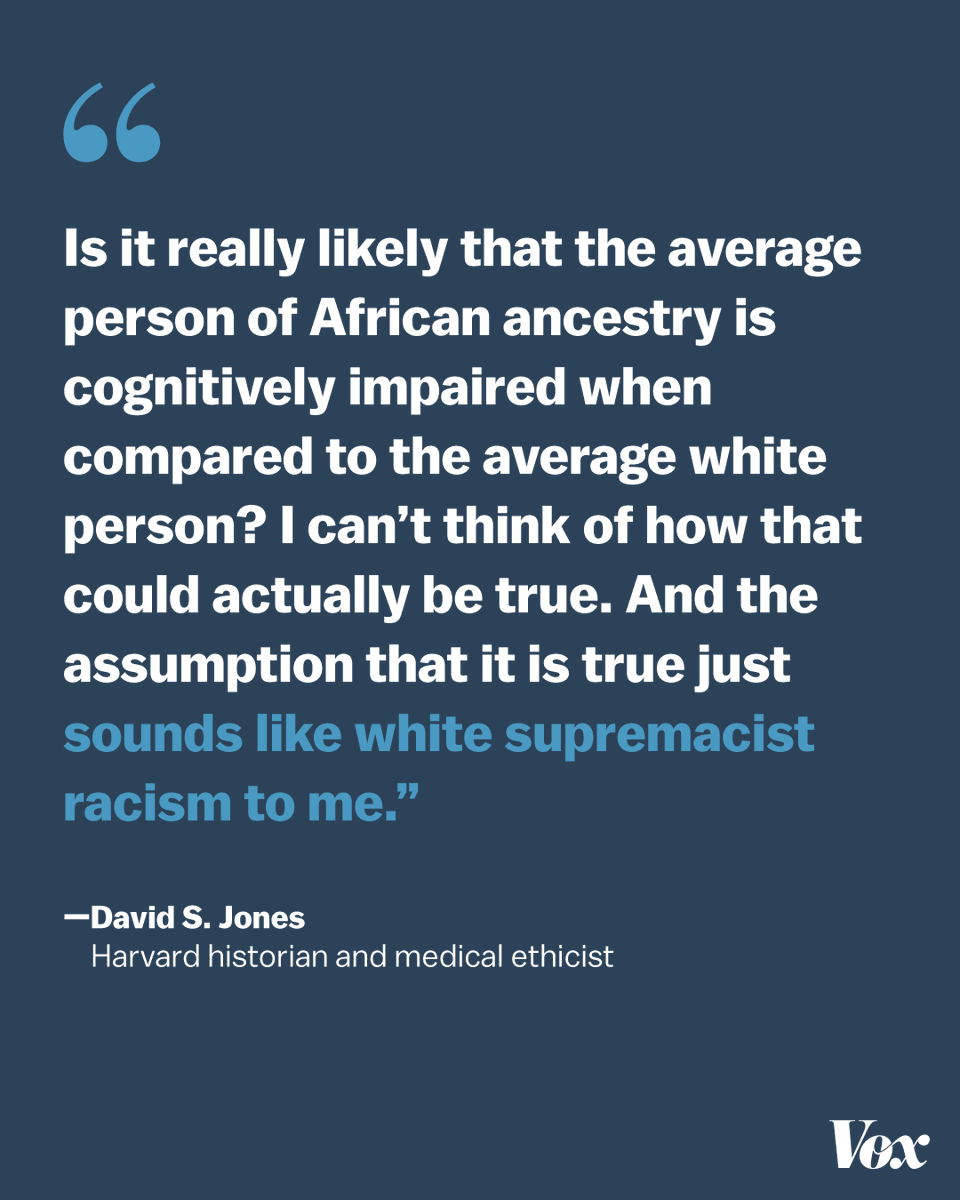
1/ For decades, Black patients were believed to have fundamentally different bodies than white ones — so doctors would often mistreat or undertreat their medical conditions.
But this dangerous "race norming" remains widely pervasive in US medicine today:
vox.com/22528334/race-…
But this dangerous "race norming" remains widely pervasive in US medicine today:
vox.com/22528334/race-…
2/ Race norming rests on a framework of white supremacy that we accept as “normal” science, and it affects major medical processes including:
—Diagnosing sickle cell anemia
—Deciding who gets kidney transplants fastest (white people)
—Gauging the risk of a vaginal birth
—Diagnosing sickle cell anemia
—Deciding who gets kidney transplants fastest (white people)
—Gauging the risk of a vaginal birth
3/ And until last month, the NFL used race norming in a dementia test to determine payouts in brain injury settlements.
The test assumed Black players have lower cognitive function than white ones — meaning Black athletes needed to show steeper cognitive decline to get paid out.
The test assumed Black players have lower cognitive function than white ones — meaning Black athletes needed to show steeper cognitive decline to get paid out.

4/ Are there any pros of race norming? Not really.
While some say we need to research better alternatives before eliminating race norming, experts agree that legitimizing racial differences in medicine perpetuates unequal care for Black patients and other patients of color.
While some say we need to research better alternatives before eliminating race norming, experts agree that legitimizing racial differences in medicine perpetuates unequal care for Black patients and other patients of color.
5/ In fact, some argue that many racial health disparities may be the result of the physiological stress of systemic racism — not race.
"The experience of racism and the experience of being Black in America has consequences on people’s health,” says physician @DarshaliVyas.
"The experience of racism and the experience of being Black in America has consequences on people’s health,” says physician @DarshaliVyas.
6/6 But there are promising signs we could be on the verge of eradicating race norming from institutions across the US for good.
Learn more about the movement to end race norming here: vox.com/22528334/race-…
Learn more about the movement to end race norming here: vox.com/22528334/race-…
• • •
Missing some Tweet in this thread? You can try to
force a refresh









